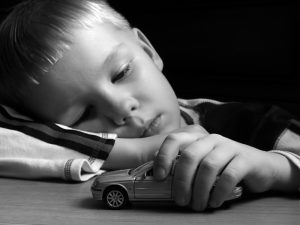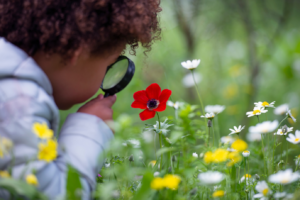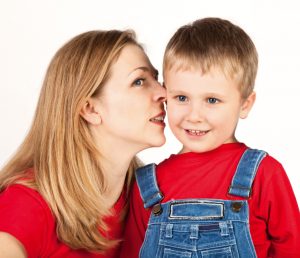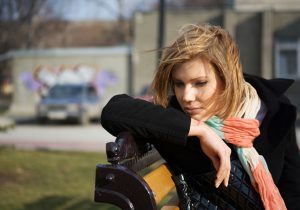The Autistic Child and Social Isolation

By Deryl Goldenberg, Ph. D. and Cherisse Sherin, M.A.
What do we mean by social isolation in children diagnosed on the Autism Spectrum?
There seems to be a valid concern, not only about the lack of social opportunities for children on the Autism Spectrum to develop friendships with peers, but for how these children learn to share and join into social experiences, which, for most, is a major obstacle. What we know about social relationships is that they include positive shared emotional experiences, purposeful engagement in social activities and back and forth social communication about shared interests; which is what forms the foundations for meaningful friendships.
Relationships can be normally viewed as a connection between individuals, such as a romantic or intimate relationship or a parent–child relationship. Interpersonal relationships usually involve some level of interdependence. Interdependence is how people in a relationship tend to influence each other, share their thoughts and feelings, and engage in activities together. What is being described here is the capacity between two individuals to relate to, care about and build upon one another’s experience.
The dual challenges we see in our practice with children on the Autism Spectrum are complex, and they become more serious and compounded as the child/teen makes their way in their school and community life. These children/teens often times do not know what to do when faced with the real life situations which may cause additional emotional stress. We find that they may not know how to respond even to positive social overtures such as good-natured teasing, “hanging out invitations,” parties and flirtations, etc. Often, their anxiety and awkwardness in social situations or teasing or bullying they may experience can drive a child/teen to become a master at avoidance. They find all kinds of excuses to avoid engaging in group play or social gatherings; they “keep their own company,” often opting for self-protective isolation.
The negative stressors that increase their risk for further social isolation include: rejection, non-acceptance, ridicule, and bullying. At times, their inner emotional turmoil can lead to them to feel sad and/or discouraged, turning their negative thoughts on themselves. We hear them say they hate their life and then may state they hate themselves. We have seen this type of thinking or feeling develop into depression, which can trigger suicidal ideation and attempts at hurting themselves. Due to their limited capacity for interpersonal relationships and when the social skills they have been taught fail them in the real world, they retreat into their homes and inside of themselves, solidifying their view of the world as too uncertain, too risky and distrustful a place to socialize.
Real Life Situations Parents Have Encountered:
- Parent takes their child to a high school dance but realizes, as the peers are milling about before entering the dance, that their child isn’t socializing with anyone.
- A parent says her son has friends, because they want to come to his house to play video games, but when he goes out on another occasion to meet them at the park, they ditch him. Not knowing what to do, he has to call his mom to come get him.
- A young teenager has one ‘friend’ through grammar school, and then becomes depressed when his only friend is seeking out other more mature peers, which leads him to feel that he doesn’t have a friend anymore. Based on this, he discloses to his counselor that no one wants to be his friend, so he doesn’t need to live anymore. This child’s isolating depression did actually cause him to make a serious suicidal attempt.
- Another middle school-aged boy says he has ‘friends,’ who he hangs out with at school, but outside of school, he has his own fun interests at home, so he doesn’t want to hang out with them. But the truth is that he does like having kids to play with but is too awkward and anxious to initiate and ask kids over.
- A school-age boy, who appears to play with friends at school tends to misperceive his friends’ reactions and then becomes over-controlling. For instance, he needed to control the situation when a prior rule for handball is changed; based on an agreement made amongst his peers. He gets really upset yelling that’s not the rule but can’t explain to his peers why it doesn’t seem fair. As he yells at a peer, the peer retorts back, ‘whatever…” He becomes increasingly angry about the situation and ends up telling the playground supervisor his friends were mean to him.
So, what are the interferences/core deficits?
The core deficits of Autism encompass essential skills which affect their ability to navigate their social world:
- Self-regulation
- Experience sharing
- Appraisal
- Episodic memory
- Flexible thinking
- Perspective taking
The impairments of a reciprocal process, which engages the use of social information such as reading social cues and understanding social pragmatics, leads to the mis-interpreting of social information. This then would necessitate needing support to remediate these deficits, so that they could learn the more ‘relational’ skills that are foundational. These need to be established initially with their own parents/caregivers; so they can then generalize relational skills into the social milieu–relating and connecting socially to others.
The Social Skills Group Myth
Parents are driven to have their children attend Social Skills groups, which typically focus on teaching children how to functionally learn how to play, interact and converse with their peers. However, static learning teaches memorized scripts to practice in specific social situations and do not usually engage children’s minds in the complexity and uncertainty of social relating. Children/teens need to learn how to be social thinkers; appraise novel situations, understand the social context, and read social cues and/or intent.
So, although traditional and didactic social skills training has its merits as children need to learn functional skills it falls quite short in terms of helping children/teens develop the flexible skill set that allows for relating and connecting with others.
Flexible social thinking is so essential to developing the curiosity necessary to initiate and sustain positive social interactions that can be built into genuine social relationships. As well, ‘weeding out the chaff from the wheat’ is also an important appraisal skill for them, so they can determine when interactions with peers are negative and detrimental – the difference between healthy and unhealthy friendships.
Children/teens need to learn, as much as possible, the ‘relational learning’ of spontaneous pragmatic exchanges and conversation, which are foundational to basic reciprocal social interactions and facilitates the making of friends.
Social Relationship Considerations
- Relationship formation is developed early on based first through non-verbal communication of the child’s want, needs and feelings – parents learning dynamically how to read their emotional signals
- Relationship building means more than connecting to a parent when they want their basic caretaking/ functional needs taken care of. (I want….or I need…. my food/water/toy/toilet, etc.)
- Relationship rapport with parents and adults needs to broaden out beyond the safety of adults to include family and peers
- Relationships may need to be expanded outside of the one or two select friends who are accommodating/ tolerant of that child’s idiosyncrasies (peers who they are able to be with, because the friends allow them to have all the control).
Relationships need to be deepened beyond the banter shared while playing video games or sitting in the dugout waiting for their turn at bat or waiting for their turn in a board/card game.
What building blocks need to be in place before friendships can be realized?
Parents may need to create and construct continual social opportunities in order to build social relationships first in their family and then bridge those relationships into the community in order to build friendships and meaningful relationships.
- Find opportunities, where there is joint attention and that involve coming together around emotionally significant or enjoyable times. It’s essential to build these significant episodic memories, so they can recreate these with other relationships.
- Make continuous meaningful comments and act curious (making declarative comments and asking salient questions) about what a child is experiencing throughout their daily experiences.
- ‘Check in’ emotionally to create space and time for negative thoughts and emotions. Allow the child to express their true feelings, frustrations, worries, anger, sadness, confusion, etc.
- Support their social, non-verbal and pragmatic communication, rather than teaching them learned script phrases, so they learn the reason for using their language/communication with others to regulate their social interactions
- Promote opportunities for social inclusion within their community to ‘practice, practice, practice’ how to navigate the social world in a variety of social milieus (as social opportunities may not happen naturally on their own in a school setting, being on a sports team or even within a social skills group).
Understanding and considering how children with Autism are affected by their deficits helps us look through a different lens as to how they perceive the social world and relationships.
Given the constitutional and environmental constrictions and difficulties they face as a result of their diagnosis in regards to social relating and communicating, it seems worthy to really take a more microscopic look and become more aware of how to stimulate their curiosity about the social world. In order to do this, we need to be the driving force to turn on their internal motivation for re-engaging and re-connecting with primary relationships, so they begin to seek out and develop real friendships.
About Cherisse Sherin, MA
Cherisse Sherin is a Clinical Supervisor/Assessor/Staff Trainer at the Verdugo Hills Autism Project. Cherisse is also a Senior Clinician with ICDL. She has worked with children and families as a Child Development Specialist for over 25 years. Cherisse collaborates and coordinates with regional centers to maintain continuity of services and provides clinical supervision for both case supervisors and interventionists. She facilitates and develops social skills programs for VHAP and schools and provides the developmental intervention training series for VHAP staff. Cherisse also provides presentations for other multidisciplinary professionals, school districts and parents that focus on Floortime, inclusion support and behavior.
Tags: autism, autistic child, child development, child-rearing, children and emotions, isolation, social bonding, social isolation







Leave a Reply